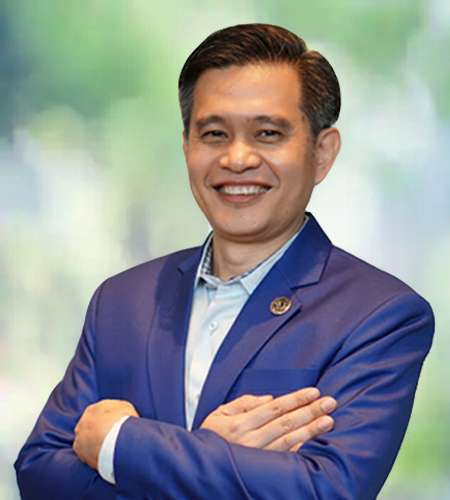Coaching in the workplace is an important component of leadership development. According to one study, it can raise better and solid alignment with an organization’s goals and values when leaders act as role models and use coaching skills in the workplace.
One survey study found that when focused on creating models of human excellence, especially in workplace dynamics, applications of NLP have been developed including the skill set of a Leader-Coach and other Leadership development related applications.
When a leader acts as a role model with the skill set of a Leader-Coach including coaching competencies, it enables a foundation of coaching. That foundation allows for coaching conversations that include coaching presence, active listening and powerful questioning.
Coaching Competencies
An impactful skill set of coaching competencies that enables a coaching conversation includes coaching presence, active listening and powerful questioning.
Coaching Presence
Coaching presence, or paying attention to the way that you listen, is the ability to be fully conscious and create a spontaneous, supportive environment. According to one interpretation, "It means owning every word, thought, and emotion so that your influence touches those who are most impacted by it."
Tip: Approaches for developing coaching presence combine a number of actions.
Your presence is the fundamental key to making a person perceive the space as safe to free their mind by commenting or expressing feelings. This is an essential element to facilitate coaching in the workplace.
From my experience in leadership development and with executives in my organization, I've learned that for leaders to be successful coaches they must be able to focus on the present and let go of various ideas. This is needed so that what remains is the person in front of you and the conversation at hand.
The practice of mindfulness helps promote this ability, whether you're using breath techniques, meditation, or some combination of both. A leader-coach can develop this mindfulness in everyday life anywhere and at any time.
Active Listening
Active listening goes hand in hand with coaching presence. It can, however, be difficult to consistently listen so as to truly understand the person communicating with you.
Tip: Active listening helps build a good relationship between interlocutors.
- Focus on becoming attentive to better listen and understand what you hear.
- Listen from a distance, with an open mind, and listen beyond the words a speaker does or does not say, such as feelings, needs, beliefs, etc. from their own leadership development experiences.
Executives in organizations who are leader-coaches can develop active listening skills in a few ways. One way is to listen consciously with your heart and live in the present with a neutral mind. Don't accidentally wander off thinking about other things or hang onto a particular verdict.
Listen with your eyes by making eye contact with the speaker, and keep watch over their body language—facial expressions, gestures and eye movement.
Listen with your ears by noting the tone and speed of the other speaker's voice throughout the conversation.
Powerful Questioning
Powerful questioning is the ability to ask questions that reveal the information needed for maximum benefit to the coaching relationship and the learner.
Tip: Powerful questioning helps raise awareness. From my experience, a leader-coach can develop powerful questioning skills by making a journal of experiences and questions that come up from using a four-question technique.
How NLP Helps to Build a Leader's Skill Set As A Coach In The Workplace
Neuro Linguistic Programming (NLP) was coined by Richard Bandler and John Grinder in the 1970’s.
It focuses on how we can explore the unconscious levels of our mind to develop qualities that can help us communicate more effectively with others and with self for success on a business and personal level.
This is why it is helpful for leaders, because not only does it help leaders in making the right business decisions, it also helps in improving personal relationships. A true leader, according to NLP ideologies, is one that works with people from different cultures and diverse perspectives to ensure higher productivity and efficiency of the team by leading from the front.
NLP helps to build a leader's skill set as a coach in the workplace in different aspects because NLP, the mindset, the tools, and the techniques, offer a strong foundation for leadership development. It supports leaders to expand their flexibility in communication, influence, and personal development.
NLP explores the connection between the neurological processes (neuro), language (linguistic), and patterns of behaviors (programming) that shape our experiences and interactions with others.
Let’s explore ways NLP enhances a leader's skill set as a coach
Neuro: Covers cognitive perception, neuro physiology, mastery of senses, dynamic of learning and state creation. Leaders can develop Neuro-related skills to become proficient in the following skills that promote the leader as coach:
“Mindset Reconstruction”
- Advance goal setting
- Understanding human perception
- Mindset & assumptions of achievers- internalizing empowering beliefs
- Sharpening sensory receptiveness
- Power of setting daily intentions
“Increasing Behavioral Flexibility”
- Observational & adaptational skills
- Connecting with people
- Reading body language
- Accessing inner resources through aligning one’s physiology
- Identifying & managing the different sensory thinking styles
Linguistic: Covers cognitive communication, questioning, making suggestions and directing thought. Leaders can develop Linguistic-related skills to become proficient in the following skills that promote the leader as coach:
“Communicate With Clarity”
- Connect: skills on paying attention & responding
- Understanding: active listening; questions to facilitate understanding
- Reconstruct: Precision questioning to re-shape people’s assumptions
- Empower: Linguistically move people from “point A to point B”
“Influencing With Integrity”
- Multi-dimensional thinking – looking at any situation from 4 perspectives
- Using language to pace and lead someone
- Understanding and utilizing suggestive language patterns
- Thinking laterally; using analogies and stories to make a point
- “Out of box” thinking – using language to “re-frame” a person’s thinking
Programming: Covers system thinking, strategy refinement, pattern of success, creativity framework and solution generation. Leaders can develop Programming-related skills to become proficient in the following skills that promote the leader as coach:
“Psychology of Self-Management”
- Understanding and utilizing the “language of the mind” – cognitive strategies
- Designing well-formed cognitive strategies
- Installing new strategies through mental rehearsal
- Mental focusing techniques
- Generating and locking-in resourceful states, e.g. confidence, calmness etc.
- Neutralizing disempowering states, e.g. anxiety, anger, frustration etc.
- Moving from procrastination to motivation
“Advanced Change Works”
- Dealing with inner conflicts and self- sabotaging
- Bolstering desired beliefs and transforming limiting beliefs
- Rallying our inner role-models for the courage to change
Conclusion
A leader's behavior has a significant impact on others.
Bad leaders can harm workplaces, while good leaders model the coaching behavior that teams should emulate.
With NLP, a leader can develop a deeper understanding of themselves and others, hone skills, and master the influence that drives positive results. Leaders can become better leaders and further improve their current leadership quality.
Leadership is becoming more diverse in today's dynamic work environment.
Furthermore, leaders can use NLP to build up the skill set of a leader-coach in the workplace and to act as a role model by focusing on the three skill sets above and ask themselves:
As a leader, how can I better role model positive coaching behaviors?
Find the answer by doing self-coaching work because before coaching others we need to be good at coaching ourselves. Crass as it might sound, there is always room for improvement, even for the biggest and best of us.
**Disclaimer: All member articles, of which this is one, express the knowledge and opinions of the member author only. The IHA supports our members in expressing their knowledge and opinions. The IHA is not responsible for any data, quotes, claims, alleged facts or opinions expressed by the author. Member articles are presented for entertainment purposes only.



